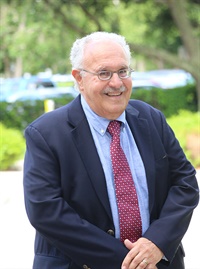Information
Basics of Criminal Law for Psychologists
Length: 90 minutes
Psychological testimony about competency and sanity issues have been used in criminal law cases since psychologists have been accepted as expert witnesses. Testimony at sentencing is also used to mitigate the sentence on guidelines, especially in Capital cases. More recently testimony in the guilt phase using evidence of how mental illness issues impacted someone’s state of mind at the time of an event has been admitted such as Battered Woman Syndrome. The legal history of the laws governing our testimony will be described. We will discuss assessment of these two areas including protocols for conducting evaluations while clients are being held in jail. Attention will be paid to protecting client’s due process rights including care not to violate their right to remain silent.
Learning Objectives:
Participants will:
- Be able to cite the major laws permitting psychological testimony in criminal cases.
- Learn the common protocol for a criminal sanity evaluation.
- Understand the difference between competency and sanity evaluations.
- Review battered woman syndrome and its impact on someone’s state of mind.
References
Shapiro, D. & Walker, L. (2019). Forensic practice for the mental health clinician. New York: TPI
Walker, L.E., Shapiro, D.L. & Akl, S. (2020). Introduction to forensic psychology: Clinical & Social Perspectives. Second Ed. New York:Springer Nature
Dr. David Shapiro, Ph.D., Professor Emeritus of Psychology, Nova Southeastern University

David L. Shapiro is a Professor Emeritus of Psychology at Nova Southeastern University. He has been involved in the field of forensic psychology for over fifty years and was one of the founders of the American Board of Forensic Psychology. He has been involved in research, teaching, and training in the forensic area, has published twelve books and approximately fifty peer reviewed articles dealing with the psychology law interface. He has received Distinguished Contribution awards from the American Academy of Forensic Psychology, The California Psychological Association, and from the Division of Independent Practice of the American Psychological Association. He has served on the Ethics Committee of the American Psychological Association, and Chaired the Ethics Committee of the American Board of Professional Psychology.
Dr. Lenore Walker, Ph.D., Psychologist

Dr. Lenore Walker is a professor emerita from Nova Southeastern University College of Psychology where she was the Coordinator of the Forensic Psychology program for the doctoral and master's students. Currently she maintains a small independent practice of forensic psychology assisting attorneys representing those who harmed or killed their abusive partners in self-defense or other civil personal injury cases requiring evaluation of client's state of mind during or after experiencing trauma. It was her research on the Battered Woman Syndrome that introduced it into the courts during the 1970’s and she was the expert witness in the Ibn-Tamas case in 1978 where President Biden just pardoned Ms. Beverly Ibn-Tamas. Dr. Walker continues her research on domestic and gender violence with the recent publication of the Survivor Therapy Empowerment Program (STEP) for incarcerated females. Walker has lectured around the world on various issues impacting victim/survivors of interpersonal violence especially using feminist psychology approaches. She has published over 25 books and numerous professional book chapters and journal articles on these topics including four editions of The Battered Woman Syndrome. With her husband, Dr. David Shapiro, they have co-edited (with Dr. Akl) the Introduction to Forensic Psychology, 2nd Edition and the Forensic Practice for the Mental Health Clinician. She has been appointed the Chair of the American Psychological Association Working Group on Professional Practice Guidelines on PTSD and Trauma. Her passion is writing mystery novels and has published “Madness to Murder” on Amazon. She is the 2023 recipient of the APF Gold Medal Award for Impact in Psychology.


